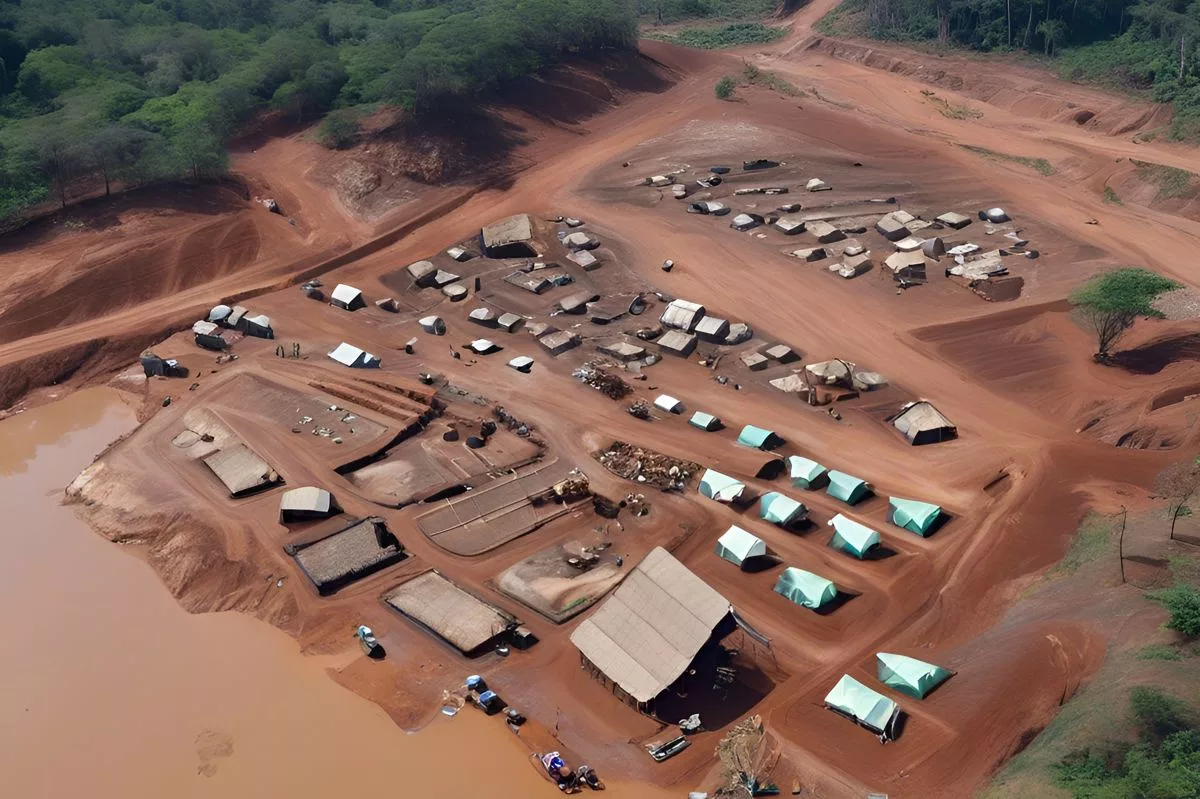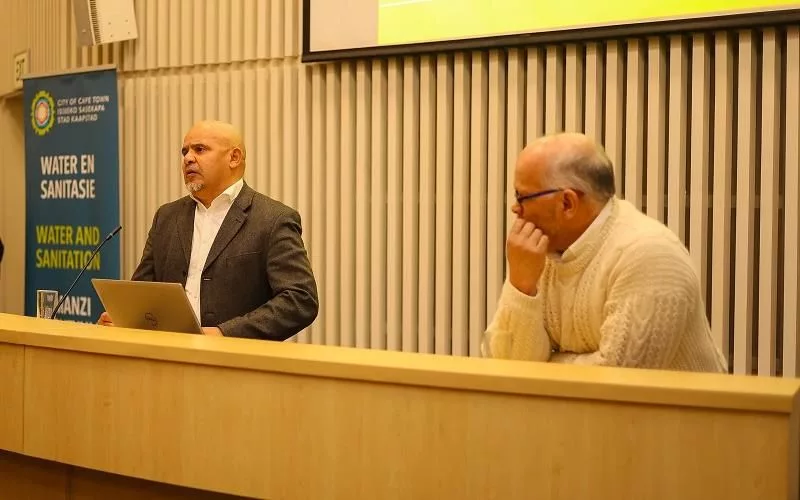South Africa is fighting against illegal mining with a strong team of police, soldiers, and private security. They’ve recently targeted a large group of about 6,500 illegal miners in Ekurhuleni, where hidden tunnels and makeshift homes showed the extent of this underground world. While these operations can push miners away temporarily, true solutions need to address the economic struggles that drive people to these risky jobs. The goal is to create lasting change that not only protects the environment but also offers communities new opportunities for a better life.
What measures are being taken to combat illegal mining in South Africa?
South Africa is tackling illegal mining through a collaborative operation involving the South African Police Service, National Defence Force, and private security firms. This approach targets illegal miners, promotes community development, and emphasizes sustainable solutions to address the socio-economic factors driving these activities.
A Multi-Faceted Operation
South Africa’s ongoing fight against illegal mining represents a challenging and urgent issue. At the forefront of this struggle, the Portfolio Committee on Mineral and Petroleum Resources recently commended a collaborative operation aimed at dismantling the activities of approximately 6,500 illegal miners at the Van Ryan site in Ekurhuleni, Gauteng. This initiative highlights the intricate balance between law enforcement efforts and the persistent allure of untapped mineral riches.
The operation combined forces from the South African Police Service (SAPS), the South African National Defence Force (SANDF), and a private security company, MI7 National Group. This coalition epitomizes a comprehensive approach to addressing the complex web of illegal mining activities. During a week-long oversight visit to the North West and Gauteng provinces, committee members were startled by the scale of operations at Van Ryan. They observed a makeshift settlement equipped with underground tunnel access points and facilities for illicit ore processing. Beyond mining, the site also supported an informal economy with unlicensed bars and eateries.
This shadow economy flourishes partly because those involved in sex work, catering, and other services pay rents to invisible kingpins ruling these lawless zones. These figures enforce a twisted form of order, creating an environment where security itself is commodified. The committee’s observations evoke comparisons to historical episodes of lawlessness, such as the California Gold Rush or the Klondike, where fortunes were made and lost overnight, and the rule of law often trailed behind the pursuit of wealth.
The Cycle of Temporary Solutions
Back in October 2023, a prior attempt to dismantle these illegal operations occurred at the direction of President Cyril Ramaphosa. The SANDF’s deployment under “Operation Prosper” temporarily dispersed the miners, but the illegal operators reemerged once the military withdrew. These recurring cycles underscore the difficulties of finding permanent solutions in environments where economic desperation often fuels illegal activities. The renewed efforts at the Van Ryan site, through the current joint operation, serve as a stark reminder that while temporary interventions are essential, they cannot replace the need for long-lasting systemic changes.
Acknowledging this reality, the committee advocates for sustainable strategies to permanently thwart illegal mining. Success stories, like the transformation of the Benoni Driving Range Racetrack from a notorious illegal mining site to a model of effective law enforcement, offer a blueprint for future endeavors. The committee’s upcoming oversight report will likely stress the importance of comprehensive policy measures and community involvement to create enduring change.
The issue of illegal mining also shines a light on broader socio-economic challenges in South Africa. Many individuals engaged in these activities are driven by a lack of opportunity and the enduring allure of mineral wealth. Addressing this requires more than just police action; it necessitates economic reform and community development programs that offer alternatives to illegal mining.
Environmental and Historical Dimensions
Moreover, the environmental consequences of illegal mining are significant. Unregulated mineral extraction results in land degradation, water pollution, and biodiversity loss, echoing environmental crises observed in other regions with similar activities. The situation demands a holistic strategy that integrates environmental conservation with robust economic initiatives.
Historically, the quest for mineral wealth has often led to exploitation and conflict. Africa’s resource-rich landscapes have been battlegrounds for local and international interests, as witnessed during colonial exploitation and more recent resource-driven conflicts. In contrast, today’s fight against illegal mining requires nuanced solutions that address the root causes of illegal activities while respecting human rights and the environment.
In crafting policies to combat illegal mining, it is crucial to engage with affected communities, providing them with viable paths to economic sustainability. This approach aligns with broader goals of social justice and economic equity, reflecting the principles embedded in South Africa’s constitution.
Towards Sustainable Solutions
The joint operation at Van Ryan, praised by the committee, serves as a powerful reminder of both the challenges and opportunities in regulating South Africa’s mineral wealth. While current efforts are commendable, they must pave the way toward more sustainable solutions. The narrative of this struggle, rich with historical echoes and contemporary challenges, remains a vital chapter in South Africa’s journey towards sustainable development and social justice.
The Portfolio Committee on Mineral and Petroleum Resources, under the leadership of Mr. Mikateko Mahlaule, exemplifies dedication to addressing these multifaceted issues. As they prepare their oversight report, the hope endures that the insights gained at Van Ryan will inform strategies that balance enforcement with empowerment, creating a future where the nation’s mineral wealth benefits all citizens equitably.
“`markdown
What measures are being taken to combat illegal mining in South Africa?
South Africa is addressing illegal mining through a collaborative operation involving the South African Police Service (SAPS), the South African National Defence Force (SANDF), and private security firms. This approach aims to dismantle illegal mining activities while promoting community development and tackling the socio-economic factors that drive individuals to engage in illegal mining.
How many illegal miners were targeted in the recent operations?
Recent operations have targeted approximately 6,500 illegal miners at the Van Ryan site in Ekurhuleni, Gauteng. This large-scale operation highlighted the extent of illegal mining activities and the complex underground infrastructure that supports them.
Why do people engage in illegal mining in South Africa?
Many individuals resort to illegal mining due to economic desperation and a lack of legitimate job opportunities. The potential for earning from unregulated mineral extraction often draws people into these risky and unlawful activities, despite the dangers involved.
What are the environmental impacts of illegal mining?
Illegal mining has significant environmental consequences, including land degradation, water pollution, and biodiversity loss. These unregulated activities can lead to long-term ecological damage, necessitating a comprehensive strategy that combines environmental conservation with economic development initiatives.
How does the South African government plan to achieve lasting solutions against illegal mining?
The government is focusing on sustainable strategies that not only address law enforcement but also promote community involvement and economic reform. By creating viable alternatives to illegal mining, the aim is to provide communities with opportunities for economic sustainability and reduce the allure of illicit mining activities.
What lessons can be learned from past operations against illegal mining?
Past operations, such as “Operation Prosper,” demonstrated that temporary interventions alone are insufficient to eliminate illegal mining. The experiences at sites like the Benoni Driving Range Racetrack, which was transformed from an illegal mining hub to an effective law enforcement model, serve as valuable blueprints for creating enduring change through comprehensive policy measures and community engagement.
“`












